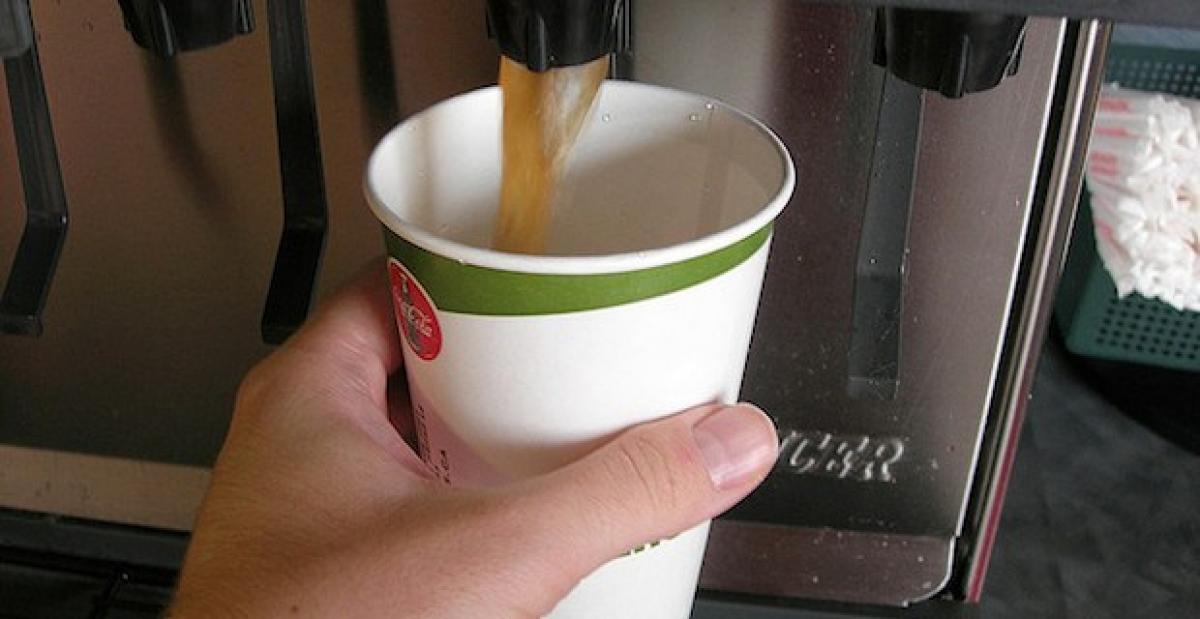Live
- ‘Thalapathi’ set for grand re-release on Rajinikanth’s 74th birthday
- Shahid Kapoor’s ‘Ashwatthama’ kept on hold due to budget constraints
- ‘Drinker Sai’ teaser: Attracts youth
- Netflix Outage in India and US Ahead of Tyson vs Paul Match
- Police Intensify Investigation into Lagacharla Attack on Officers; Eight More Detained
- Google Docs Introduces AI-Powered Clip Art Generator with Gemini
- LIC sets up stall at India Int’l Trade Fair
- Celebrating journalism and its role in society
- Supporting emotional well-being in children
- Govt plans 1 mn sq km oil exploration by 2030
Just In

Teenagers who consume a diet low in vegetables and high in sugar-sweetened and diet soft drinks may be at increased risk for premenopausal breast cancer, warns a study.
Teenagers who consume a diet low in vegetables and high in sugar-sweetened and diet soft drinks may be at increased risk for premenopausal breast cancer, warns a study.
Women who consumed a diet as adolescents or young adults associated with chronic inflammation had a higher risk for premenopausal breast cancer compared with those whose adolescent and early adulthood diet was not associated with chronic inflammation, showed the findings published in the journal Cancer Epidemiology, Biomarkers & Prevention.
"Our results suggest that a habitual diet that promotes chronic inflammation when consumed during adolescence or early adulthood may indeed increase the risk of breast cancer in younger women before menopause," said Karin Michels, Professor at University of California, Los Angeles Fielding School of Public Health.
A diet low in vegetables and high in sugar-sweetened and diet soft drinks, refined sugars and carbohydrates, red and processed meats, and margarine has been linked to high levels of inflammatory markers in the blood, said Michels.
"Because breast cancer takes many years to arise, we were curious whether such a diet during the early phases of a woman's life is a risk factor for breast cancer," she said.
For this study, Michels and colleagues used data from 45,204 women enrolled in the Nurses' Health Study II who had completed a food frequency questionnaire in 1998, when they were between ages 33-52, about their diet during high school.
Adult diet was assessed first using a food frequency questionnaire in 1991, when participants were ages 27-44, and then every four years after that.
Each woman's diet was given an inflammatory score using a method previously developed that links diet with inflammatory markers in the blood.
During 22 years of follow-up, 870 of the women who completed the high school food frequency questionnaire were diagnosed with premenopausal breast cancer and 490 were diagnosed with postmenopausal breast cancer.
When women were divided into five groups based on the inflammatory score of their adolescent diet, those in the highest score group had a 35 per cent higher risk for premenopausal breast cancer relative to those in the lowest score group.
When the same analysis was done based on early adulthood diet, those in the highest inflammatory score group had a 41 per cent higher risk for premenopausal breast cancer relative to those in the lowest score group.

© 2024 Hyderabad Media House Limited/The Hans India. All rights reserved. Powered by hocalwire.com







